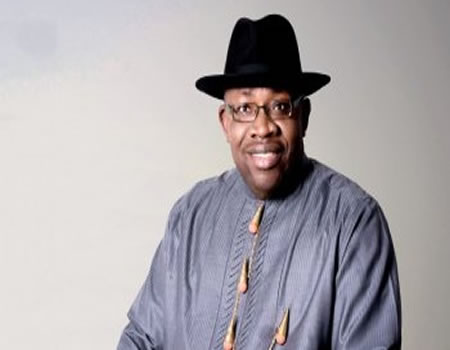BAYELSA Health Practitioners has been told to resist attempt to resort to strike as means to resolve industrial dispute, in order to salvage massive investments and achievements made in the health sector in the state.
Governor Seriake Dickson of Bayelsa State noted that strike and inter-professional rivalry is capable of distracting planned programmes earmarked in the health sector.
Represented by his deputy, Rear Admiral John Jonah (retd), Dickson gave the advice during the 10th year anniversary of the Niger Delta University Teaching Hospital at the DSP Alamieyeseigha Memorial Banquet Hall, Yenagoa.
He implored health workers to always explore dialogue as a veritable tool in addressing issues rather than embark on industrial action that could retard government pace at improving the health the sector.
Dickson charged the management of the NDUTH to be focussed on quality improvement, partnership, accountability and think innovation and creativity at all times in the best interest of the patients.
He said NDUTH as the flagship health institution, must be at the forefront in improving the quality healthcare delivery in the state as Bayelsa becomes the next medical tourist destination in Nigeria.
The Governor posited that against the backdrop of daunting challenges, the hospital had cared for thousands of patients and had been a major institution that had contributed to the health manpower needs of the state.
He stated, ”As this institution strives for excellence, the government is open to partner and collaborate with donor agencies and the academia in health research.
”It is the state government’s belief that such endeavour will address the major health challenges of our people thereby putting the state on the path of health and economic recovery.
”To demonstrate its seriousness, the government has invested so much infrastructural development across the state. Notably is the Bayelsa State Specialist Hospital, Bayelsa State Diagnostic Centre in Yenagoa, and the local government areas are the referral hospital projects that are soon to be inaugurated and put to use.”
Earlier, the Chief Medical Director, NDUTH, Prof Dimie Ogoina, said over the last decade, the teaching hospital had been directly involved in the full and part-time training and re-training of more than 5,000 health workers of almost every professional group.
Ogoina averred that beyond doctors, beneficiaries also include nurses, pharmacists, laboratory scientists and students from diverse groups, noting that in conjunction with the Niger Delta University, the hospital is proud to have trained and graduated six sets of no less than 300 medical doctors.
He said that in the next five to 10 years, the hospital hoped to become a centre of excellence for healthcare delivery in the Niger Delta region and beyond.
Ogonia pointed that in line with the vision of the teaching hospital, the stakeholders have proposed six possible areas of excellence including minimal access surgery, eye care, infectious diseases, blood cancers, cardiovascular health and preventive medicine/wellness.
To this end, he expressed confident that one or more of these centres of excellence will become a reality in the NDUTH before the next decade, and that management now realises that vision is realised only by deliberate and sustainable actions by all stakeholders.





